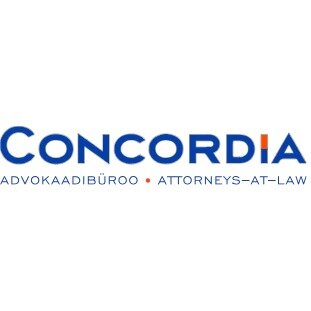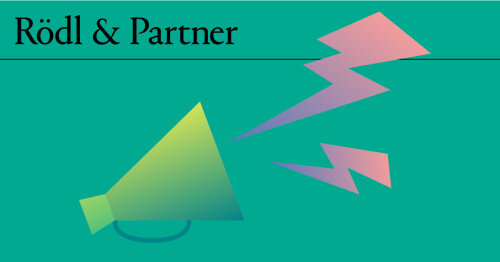Best Water Law Lawyers in Estonia
Share your needs with us, get contacted by law firms.
Free. Takes 2 min.
Or refine your search by selecting a city:
List of the best lawyers in Estonia
About Water Law in Estonia
Water Law in Estonia encompasses the legal regulations and policies governing the use, protection, and management of water resources across the country. As a nation with abundant water bodies, including rivers, lakes, and coastal regions along the Baltic Sea, Estonia’s water resources are essential for both ecological balance and economic development. The legal framework for Water Law in Estonia aligns with European Union standards and seeks to ensure sustainable use, protection of water bodies, prevention of pollution, and safe public access where permitted. The central legislation is primarily based on the Water Act, supported by a range of other environmental and land use laws.
Why You May Need a Lawyer
Engaging a lawyer who specializes in Water Law can be crucial in various scenarios. Common situations include:
- Seeking clarification and compliance regarding water use permits, particularly for agricultural, industrial, or commercial purposes.
- Facing disputes over water rights or usage among neighbors, businesses, or municipalities.
- Challenging or appealing decisions made by environmental authorities concerning water management or pollution penalties.
- Navigating issues related to land development projects near protected waters, wetlands, or coastal areas.
- Dealing with accidental pollution events or preparing for environmental liability matters.
- Negotiating contracts involving water supply, wastewater treatment, or infrastructure projects.
- Addressing concerns over public access to water bodies and related infrastructure developments.
A lawyer’s expertise helps ensure compliance with regulations, resolves conflicts efficiently, and protects your interests in complex legal environments.
Local Laws Overview
The primary piece of legislation regulating water in Estonia is the Water Act. This law regulates water use, environmental protection of water bodies, groundwater extraction, wastewater treatment, and pollution control. It also sets out procedures for obtaining permits for use or alteration of water bodies. The following aspects are particularly relevant:
- Water Use Permits: Activities that impact water bodies or groundwater often require permits. This includes abstraction, discharge, or construction near water.
- Water Quality Protection: Strict regulations are in place to prevent pollution and degradation, with specific standards for different types of water.
- Public Access: Estonia guarantees public access to most natural water bodies, though some restrictions exist to protect ecosystems or private property.
- Flood Management: Regulation of activities in floodplain areas aims to prevent flood damage and maintain natural flood cycles.
- EU Directives: Estonian Water Law complies with EU Water Framework Directive and related directives on bathing water, drinking water, and marine protection.
- Protected Areas: Special rules apply to water sources in environmental protection zones or nature reserves, often restricting human activity for conservation.
Violations of the Water Act can lead to administrative or criminal penalties, depending on the severity of the infraction.
Frequently Asked Questions
What is the main law governing water use in Estonia?
The primary law is the Water Act, which regulates the sustainable use, protection, and management of water resources in Estonia.
Do I need a permit to use water from a lake or river?
Yes, in most cases, you need a water use permit, especially if the activity involves significant abstraction or any discharge of wastewater.
Are private landowners allowed to restrict access to public water bodies?
Generally, public access to water bodies is protected, but access through private land may be restricted if it damages property or is not using a designated right of way.
What are the rules regarding drilling wells on private property?
Drilling wells typically requires a permit, and there are regulations concerning depth, distance from pollution sources, and environmental protection measures.
What kind of activities are considered water pollution under Estonian law?
Discharging untreated or inadequately treated wastewater, dumping solid waste, or contaminating water with hazardous chemicals are all considered pollution.
Can I build on land located near a water body?
Legislation often restricts construction in coastal areas, wetlands, and within certain distances from lakes and rivers to protect water ecosystems.
Who enforces Water Law in Estonia?
The Environmental Board (Keskkonnaamet) and the Ministry of the Environment are responsible for enforcing Water Law and issuing relevant permits.
How are floodplain areas regulated?
Specific limits are placed on construction and land use in floodplain areas to minimize flood risk and maintain natural water flow.
What penalties can result from violating Water Law?
Penalties may include fines, orders to remediate environmental damage, permit revocation, or even criminal charges in severe cases.
How does EU law influence Water Law in Estonia?
Estonia is required to implement EU Water Framework Directive and related rules, which shape national standards for water protection and management.
Additional Resources
If you are seeking more information or assistance, consider the following resources:
- Estonian Environmental Board (Keskkonnaamet) - The main authority for permits, enforcement, and public information regarding Water Law.
- Ministry of the Environment - Responsible for national water policy and legislation.
- Environmental Inspectorate - Handles complaints, inspections, and investigation of infractions.
- Legal aid centers - Offer guidance to individuals navigating regulatory or property disputes involving water.
- Environmental NGOs - Such as the Estonian Fund for Nature, which can provide advice, advocacy, or support in certain cases.
Next Steps
If you believe you need legal assistance related to Water Law in Estonia, follow these steps:
- Identify the specific issue or legal question you need help with, such as permit applications, disputes, or regulatory compliance.
- Gather all relevant documentation, including land use plans, permits, correspondence with authorities, and details of the water body involved.
- Contact a lawyer or law firm that specializes in environmental or Water Law in Estonia for an initial consultation.
- Seek advice from governmental bodies such as the Environmental Board if your situation involves permit requirements or compliance questions.
- If cost is a barrier, inquire about legal aid or nonprofit organizations that can provide assistance or representation.
Taking these steps will help you understand your rights and obligations, and ensure that your interests are protected in matters involving Water Law in Estonia.
Lawzana helps you find the best lawyers and law firms in Estonia through a curated and pre-screened list of qualified legal professionals. Our platform offers rankings and detailed profiles of attorneys and law firms, allowing you to compare based on practice areas, including Water Law, experience, and client feedback.
Each profile includes a description of the firm's areas of practice, client reviews, team members and partners, year of establishment, spoken languages, office locations, contact information, social media presence, and any published articles or resources. Most firms on our platform speak English and are experienced in both local and international legal matters.
Get a quote from top-rated law firms in Estonia — quickly, securely, and without unnecessary hassle.
Disclaimer:
The information provided on this page is for general informational purposes only and does not constitute legal advice. While we strive to ensure the accuracy and relevance of the content, legal information may change over time, and interpretations of the law can vary. You should always consult with a qualified legal professional for advice specific to your situation.
We disclaim all liability for actions taken or not taken based on the content of this page. If you believe any information is incorrect or outdated, please contact us, and we will review and update it where appropriate.
Browse water law law firms by city in Estonia
Refine your search by selecting a city.
















